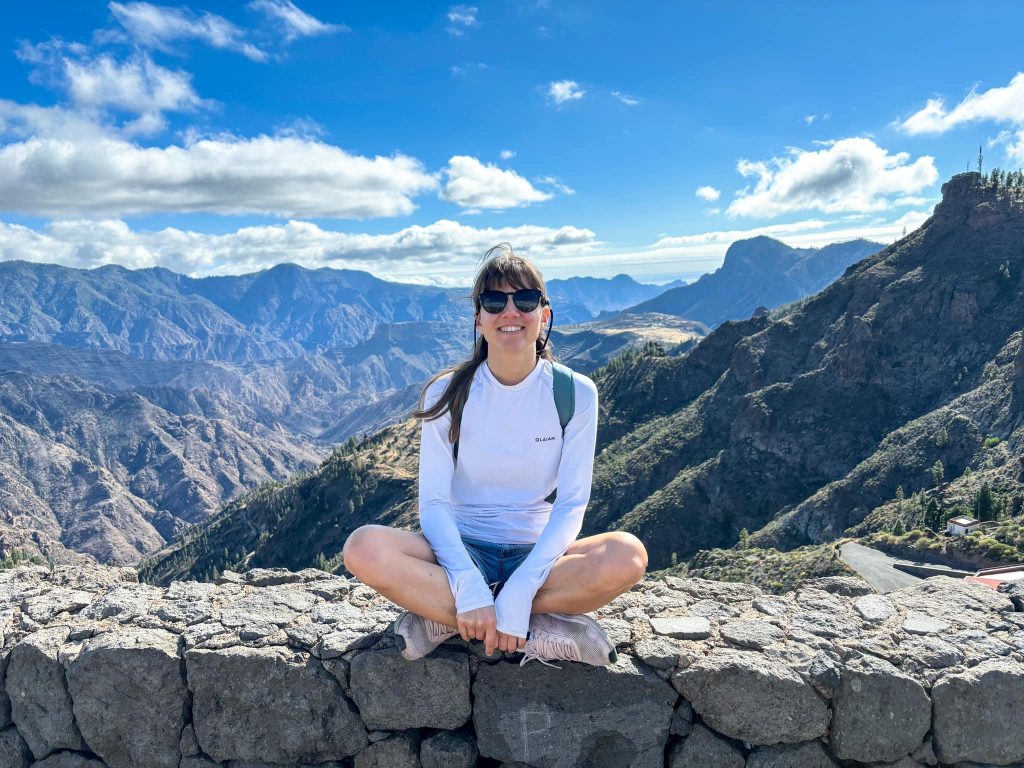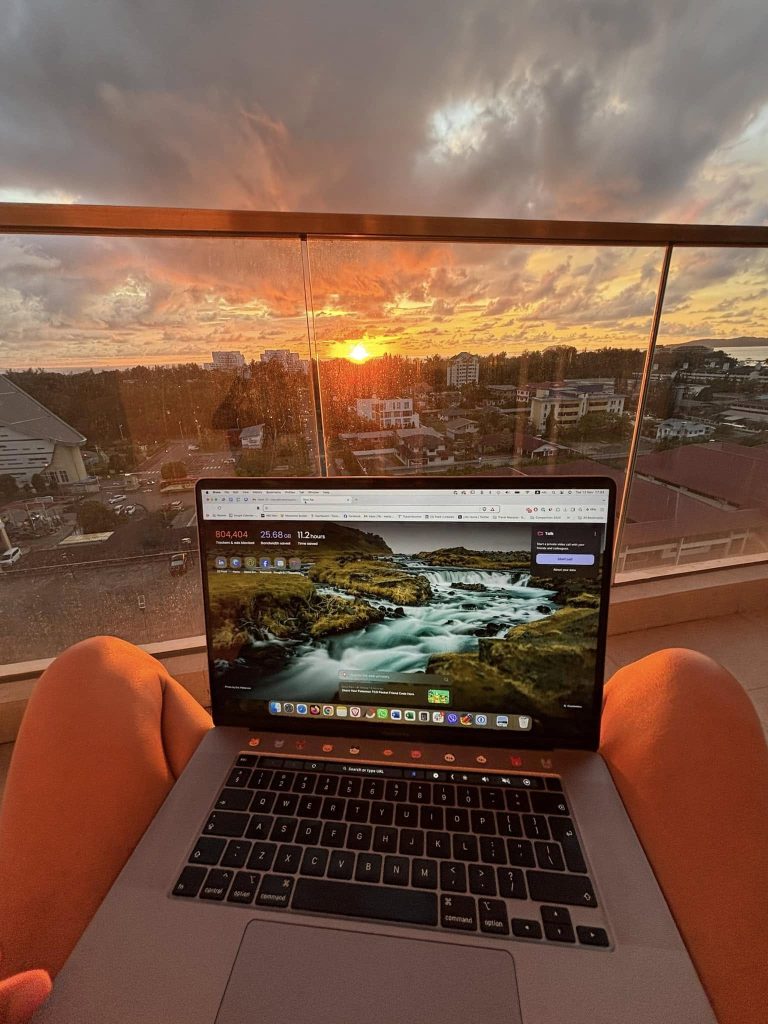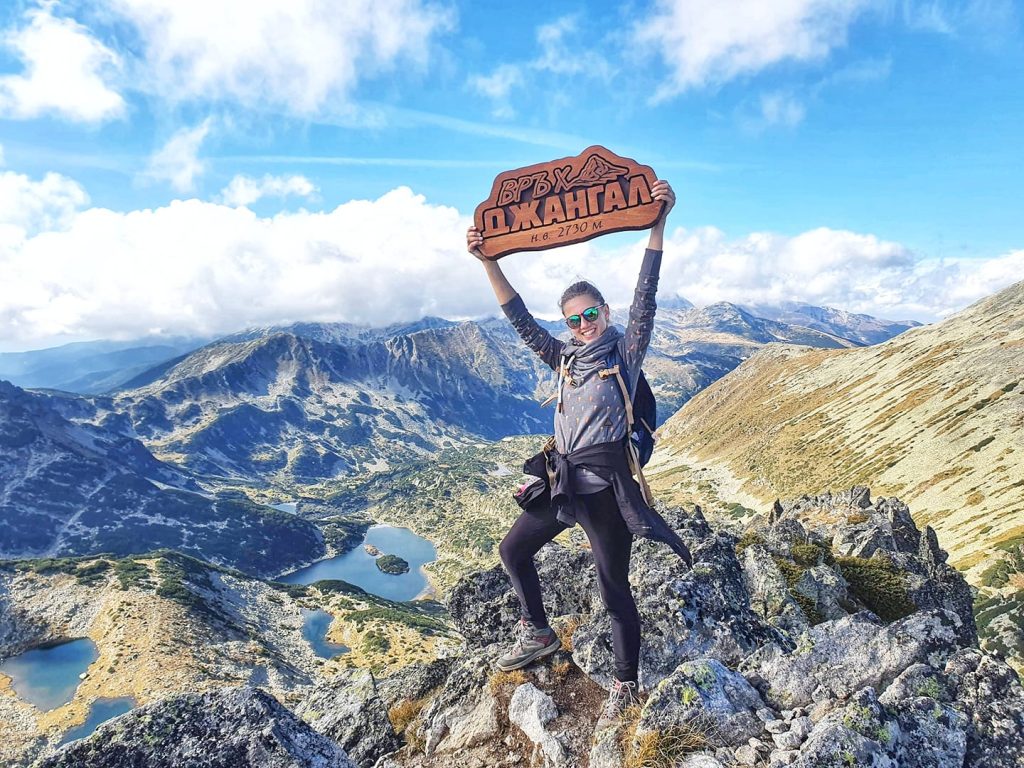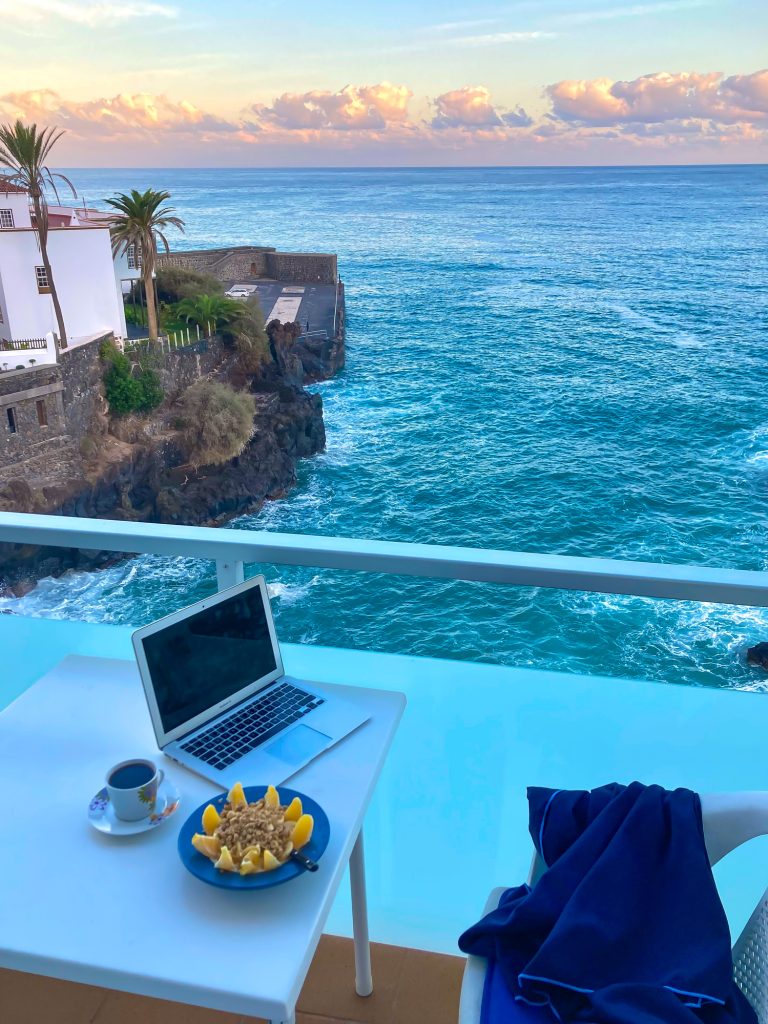At this time of year , the Asian island of Borneo is rainier but still welcoming with its warm weather, turquoise beaches and hospitable people.
From there, H512.com caught up with Maria Stoyanova, who has been living mainly in Bali for the past few months, preceded by snowboarding adventures in Japan and surfing in Gran Canaria. Next up are the slopes at the Georgian ski resort of Gudauri. But Maria is not just a traveller. She’s a digital nomad and one of nearly 35 million people who lead a similar lifestyle.
Of all these destinations, she’s working on the degree she graduated with – tourism marketing. She only partners with foreign companies who she says appreciate her hard work, drive and perseverance more.

The freedom of the new time
Maria is one of the examples of people who choose life on the go and combine their profession with the passion for new cultures. Behind this remote mode of work is a global trend that is transforming entire economies, including Bulgaria’s. That is why H512.COM’s Job Board has a separate category that allows a balance between travel and work from anywhere in the world.
Maria herself is passionate about digital nomadism in Bulgaria. Seven years ago, she organized several events in the first co-working center in Bansko and gradually began to enter the “traveling office” circles.


“Meeting people who are doing what they love has inspired me. In this environment there is energy, curiosity, respect and an open mind,” she recalls. “In Bali, my work day is from 3:00 p.m. to 11:00 p.m., and I fill every spare minute with a new adventure. This is the life I’ve chosen, and I don’t think we have to wait for a special moment to start enjoying it.”
And despite being largely independent of each other, digital nomads have their own active community. They’re brought together by platforms like Nomads.com, where anyone can share their opinion of a city they’ve worked from. By the time the editorial was finished, Varna ranked 31st according to the site’s criteria and it was estimated that the monthly cost of a digital nomad is just over $2 thousand. Burgas falls in 49th position and is found to be about 700 dollars more expensive. Sofia is in 121st place.
“I always plan to spend time in places where there are other digital nomads. It’s the easiest way into the destination. Even if you don’t socialize with only foreigners, it’s always nice to have people who have trodden the path,” Maria says.

Everywhere she goes, she uses co-working spaces and shared shelter, specifying that she personally prefers villas with private rooms and a shared kitchen or office to hostels. “They’re usually a lot more expensive than renting your own apartment and attending events, but there are benefits,” she adds.
One of those useful sides are the new (and increasingly scarce) skills she has acquired through her contact with other digital nomads – tolerance, confidence, flexibility, patience, knowledge of different countries and cultures. “I learned to focus on the really important things, not, for example, that the flight was delayed by an hour. You learn to find quick solutions to common problems without a lot of stress,” says Maria.
Being a digital nomad – more easy or more hard?
To attract these talents in the long term, some countries have introduced or are considering introducing special visas to make it easier for them to stay and work legally. As of 2024, Indonesia has a remote worker visa option that allows up to a one-year stay, renewable once.
Maria Stoyanova currently has a 30-day visa, which can be extended by one month. The other option is to leave the country briefly and return again for 30 days (this “trick” is called visa run). “In almost all the destinations I have been to so far, visits of up to three months are quite easy for us Bulgarians, including in non-EU countries like Japan,” she explains, adding that while travelling and working around the world, she pays all her social security and taxes in Bulgaria.
The idea of a long-term visa for digital nomads also responds to the trend of “slow nomadism” (so-called slomading), where these talents stay for longer periods in the same place to reduce the fatigue of constant travel, achieve an even better work-life balance and integrate into the local culture.





According to Resume.io, four EU countries – Spain, Italy, Portugal and France – are among the top 10 destinations for digital nomads in the world and most of them already have special visas. If an IT professional from Bulgaria starts a remote job, which for example they found through our Job Board, they can head to a destination on the block without needing a special residence visa.

Photo: iStock
But if he’s planning a life as a digital nomad outside the EU, dozens of countries can now offer it. Among them is neighbouring Turkey, where Bulgarians can apply for such a document.
In Japan, the special visa is valid for six months and is only issued to citizens from a pre-approved list of countries, which again includes Bulgaria. The document allows a person to move there with his or her entire family.
Taiwan has a similar idea, and the list goes on with exotic destinations such as the Bahamas and the Seychelles, which offer up to a year’s stay.
Explore more
Welcome to Bulgaria!
According to the Bulgarian Entrepreneurial Association (BESCO), most digital nomads around the world are graduates with valuable know-how, which they bring to a number of destinations in our country – Bansko, Borovets, Veliko Tarnovo, Plovdiv, the Black Sea and even to the countryside.

“Digital nomads are a widespread tool in almost all of Europe to attract highly educated staff. They work mostly in the technology and creative industries and, besides spending their money in Bulgaria, they promote our beautiful nature, rich history and cultural heritage around the world,” says Alexander Nutsov, Director of Strategy and Policies at BESCO. He says this also turns these people into ambassadors for the country around the world, which helps our image as a hub for innovation.
With Bulgarian businesses predicted to be looking for over 260 thousand employees next year, our country can take advantage of its other advantages to attract them – the relatively low cost of living and housing compared to Western Europe, the quality of food and public transport, the many shared workspaces and the opportunities for adventure after work. And last but not least , high-speed internet, without which no nomad can be digital.
Bulgaria does not yet offer a visa for digital nomads, and foreigners who work here temporarily use short-term travel solutions. BESCO supports the development and introduction of a one-year visa for these types of professionals with the option to renew up to five times.
“It will attract a wide range of people, and as we are competing with around 60 countries that currently have this type of special residence permit, the economic benefits to the country will be significant, especially as some of these people may later decide to settle in the country and do business here,” Alexander Nutsov further commented.
He adds that like any other residence permit – blue cards, start-up visas and the like, digital nomads will also go through checks and a comprehensive visa process. To this end, BESCO has already held a number of meetings with the Bulgarian authorities. “Henceforth, when a person gets such a permit and comes to Bulgaria as a digital nomad, the benefits are for the economy, business and tourism,” the organisation is adamant.
The importance of digital nomads for the country
Thus, there is an emerging need in Bulgaria for a focused look at how to make digital nomads a workable element of the overall economic picture, which currently includes a decline in foreign direct investment.
“Digital nomads can contribute to the development of the business environment in Bulgaria by creating their own companies, sharing know-how and acting as business angels or investors. Attracting more nomads can bring between 17 and 35 million BGN per year in direct investments in the economy, and the secondary effects include the promotion of Bulgaria as a tourist destination,” Alexander Nutsov from BESCO further commented.


Our country can successfully compete for this financial resource with countries such as Greece, Romania and Croatia, which have been offering special visas for digital nomads for several years. According to BESCO, Croatia, for example, hosts about 150 nomads a month, or nearly 2,000 a year, and Romania is also aiming for similar results.
“We want to catch up at the legislative level by creating the necessary framework to attract digital nomads. Bulgaria has too good competitive advantages that can make it even more attractive than our competitor countries,” BESCO stressed.
And while we wait for the digital nomad visa to become a reality in our country, Maria Stoyanova shares her simple recipe for living like a digital nomad.
step 1: Find a remote job or make your current one.
step 2: Spend time with other nomads, starting with Bansko Nomad Fest 2025.
If you’re also looking for a remote job option, open IT positions you can fill from America, Bali or Japan are available on our Job Board.


 Publish date: 16 December, 2024
Publish date: 16 December, 2024




